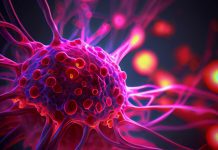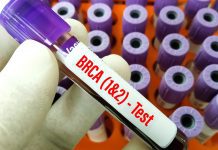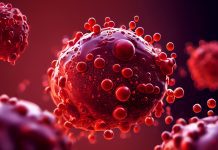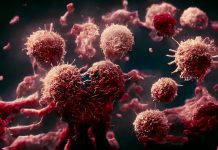Cancer Related News
NHS approves breakthrough childhood brain tumour treatment
In a significant development for pediatric oncology, the NHS in England is poised to introduce the first-ever targeted brain tumour treatment for children and...
NHS cancer checks more than doubled in the last decade
NHS cancer checks have topped three million in a year for the first time, more than doubling in the last decade.
Spread of triple-negative breast cancer fuelled by softer tumours
Researchers have found how the mechanical properties of triple-negative breast tumours can influence how their cancerous cells spread to other organs.
According to new findings...
Neuroblastoma research could unlock more precise prognoses
A new neuroblastoma study has identified new subgroups with distinct prognoses and vulnerabilities to therapies.
Defence Therapeutics announces successful ARM-002TM cancer vaccine results
Defence Therapeutics has announced the successful testing of its second-generation anti-cancer vaccine, named ARM-002TM, utilising its flagship anti-cancer molecule, AccuTOX®.
The ARM-002TM cancer vaccine, when...
NHS pilot trials lung cancer blood test across thousands of patients
The NHS is conducting trials for a groundbreaking lung cancer blood test to detect the disease at its earliest stages.
Scientists identify protein interface that drives cancer growth
For the first time, researchers have shown that the protein interface that drives cancer growth could act as a target for more effective treatments.
Led...
Anti-diabetic drugs may lower brain cancer risk, says the University of Bristol
Researchers from the University of Bristol have uncovered a potential link between long-term use of certain anti-diabetic drugs and a reduced risk of primary...
NHS introduces ‘sponge-on-a-string’ test for Barrett’s oesophagus
The NHS is set to roll out a simple ‘sponge-on-a-string’ to diagnose Barrett’s oesophagus – a move that will benefit thousands of patients.
The innovative...
Challenges and opportunities for cervical screening and HPV vaccine uptake
Despite being one of the most preventable and treatable forms of cancer, many barriers to cervical cancer screening and HPV vaccine uptake exist. We...
Improvements in cancer survival rates slowing, say Cancer Research UK
Ahead of World Cancer Day on Sunday, Cancer Research UK has revealed that improvements in cancer survival rates have slowed in recent years.
BRCA gene testing programme launched by NHS to identify cancer risk
Tens of thousands of people with Jewish ancestry are set to benefit from a pioneering BRCA gene testing programme unveiled by the NHS.
The BRCA...
Breakthrough discovery unlocks new path in treatments for leukaemia
A groundbreaking discovery by researchers at Université libre de Bruxelles may help innovate new treatments for leukaemia.
Led by François Fuks, the study has uncovered...
NHS initiative introduces urinal mats carrying male cancer warning messages
Public toilets in England are set to feature urinal mats carrying crucial warnings about blood in urine to promote cancer symptoms in men.
New Cancer Research UK manifesto aims to avoid 20,000 UK cancer deaths per year
Cancer Research UK has launched a new manifesto urging the next UK Government to take action to prevent 20,000 avoidable UK cancer deaths annually...
Administration of AccuTOX™-chitosan inhibits the growth of established solid lymphoma in animals
Defence Therapeutics has announced that systemic administration of novel AccuTOX™-chitosan encapsulated formulation inhibits the growth of pre-established solid lymphoma resulting in their progressive shrinking...
Defence Therapeutics Inc. releases Accum® study revealing its anti-cancer properties
Defence Therapeutics Inc. have announced the publication of a peer-reviewed study on the anti-cancer properties of its unconjugated Accum®.
UK and BioNTech SE sign landmark deal for cancer vaccine trials
The UK Government has established a historic agreement with German-based BioNTech SE for cancer vaccine trials.
The groundbreaking deal will improve access to cancer vaccine...
Pioneering approaches to gynaecological cancer diagnostics
Lorna Rothery spoke to Marina Rigau, CEO and Co-Founder of EIT Health-supported start-up MiMARK, about the challenges associated with the diagnosis of gynaecological conditions.
By...
The importance of sex differences in pancreatic cancer treatment
Researchers from Karolinska Institutet have found that certain immune cells in women with pancreatic cancer can obstruct their immune response.
The findings may explain differences...

































